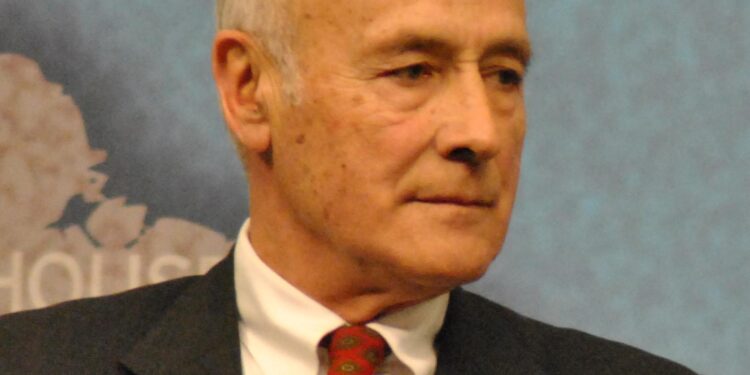Joseph Nye: A Visionary in Global Diplomacy
Joseph Nye, a distinguished political scientist celebrated for his groundbreaking concept of “soft power,” has passed away at the age of 88. His innovative ideas transformed the conversation surrounding international relations and diplomacy, highlighting the significance of attraction and persuasion over coercive tactics in global interactions. As a former dean at Harvard Kennedy School and a pivotal figure in American political thought, Nye’s theories continue to influence contemporary debates on power dynamics within our rapidly changing world. His passing signifies a profound loss for scholars and practitioners who appreciated his insights into the intricate nature of power in an increasingly interconnected society.
The Influence of Soft Power on Global Diplomacy
The impact of Joseph Nye’s work is evident in how it reshaped global diplomacy. By introducing the notion of soft power, he shifted attention from traditional military strength to the importance of cultural appeal, values, and policies that foster international collaboration. This paradigm shift encouraged nations to not only enhance their hard power capabilities but also develop their ability to sway others through diplomatic efforts, educational initiatives, and cultural exchanges.
In today’s world—characterized by multifaceted challenges—Nye’s framework remains exceptionally pertinent. Countries are actively seeking ways to bolster their soft power, employing strategies such as:
- Investing more resources into cultural diplomacy
- Facilitating educational programs, including scholarships for foreign students
- Tapping into digital media platforms to promote national narratives effectively
Nye’s contributions have enriched diplomatic discussions while inspiring emerging leaders and policymakers to prioritize cooperation and mutual understanding within their foreign policy frameworks.
Joseph Nye’s Impact on Global Relations Revisited
The influence Joseph Nye had on international relations through his concept of ‘soft power’ has significantly altered how nations engage with one another globally. Introduced during the late 20th century, this revolutionary idea emphasizes attraction over coercion as a means for achieving diplomatic goals. According to Nye, countries can fulfill their objectives not solely through military force or economic pressure but by fostering appealing cultures, political ideals, and foreign policies that resonate with other nations’ interests. His theories have been crucial in shaping many countries’ foreign policy strategies towards collaborative rather than confrontational approaches.
Nye consistently highlighted how evolving global interconnections change traditional notions of power dynamics throughout his career. He differentiated between hard power (coercive measures like military intervention) and soft power (influence based on attraction). This distinction has led to new paradigms within international diplomacy as well as conflict resolution methodologies. Notably reflected in various geopolitical scenarios—including U.S diplomatic strategies—his insights also illuminate how countries like China and India are increasingly embracing soft power principles today.
The Evolving Role of Soft Power in Modern Politics
The recent death of Joseph Nye has reignited conversations about soft power’s role moving forward within international relations frameworks today—a concept emphasizing shaping preferences through allure rather than forceful means amidst growing global interdependence trends worldwide . In an era where conventional hard powers often lead toward instability ,Nye’s vision resonates profoundly . The shifting landscape marked by non-state actors’ rise alongside digital communication proliferation presents both hurdles yet opportunities alike for nations aiming leverage cultural ideologies effectively across borders .
As we look ahead ,a nation’s success utilizing its soft powers hinges upon its adaptability amid changing circumstances . Key considerations include :
- < strong >Technological Advancements:Utilizing social media channels engaging diverse audiences globally .
< li >< strong >Cultural Engagement:Promoting arts education values transcending geographical boundaries .
< li >< strong >Leadership In Climate Initiatives:Positioning oneself proactively addressing sustainability challenges internationally .
< /ul >The ongoing evolution surrounding these concepts will shape not just individual country policies but also facilitate cooperative relationships among them navigating complex geopolitical terrains ahead ; thus prompting critical evaluations regarding recalibrating principles guiding future applications related directly back towards foundational ideas established by Joseph Ny e himself throughout his lifetime dedicated service promoting understanding cooperation amongst peoples everywhere around globe !< / p >
Concluding Thoughts on Joseph Nye’s Legacy
In reflecting upon Joseph Ny e ’s remarkable contributions ,it becomes clear that he fundamentally altered perceptions regarding what constitutes effective engagement between states —advocating strongly for prioritizing softer approaches fostering deeper connections beyond mere displays might alone! His legacy characterized intellectual rigor commitment towards creating more harmonious societies will undoubtedly inspire generations scholars policymakers alike long after this momentous occasion marking end era ;yet discussions ignited around culture values remain ever relevant guiding us forward navigating complexities inherent modern-day realities faced collectively together!










